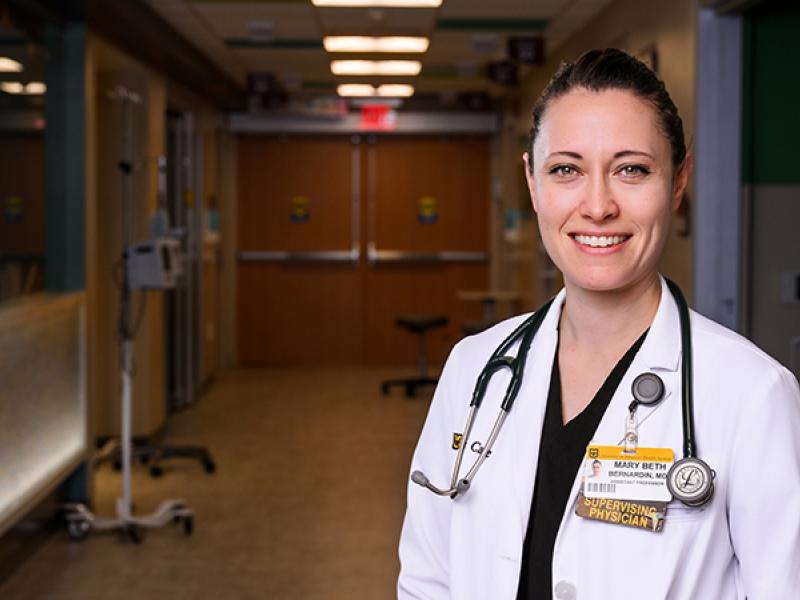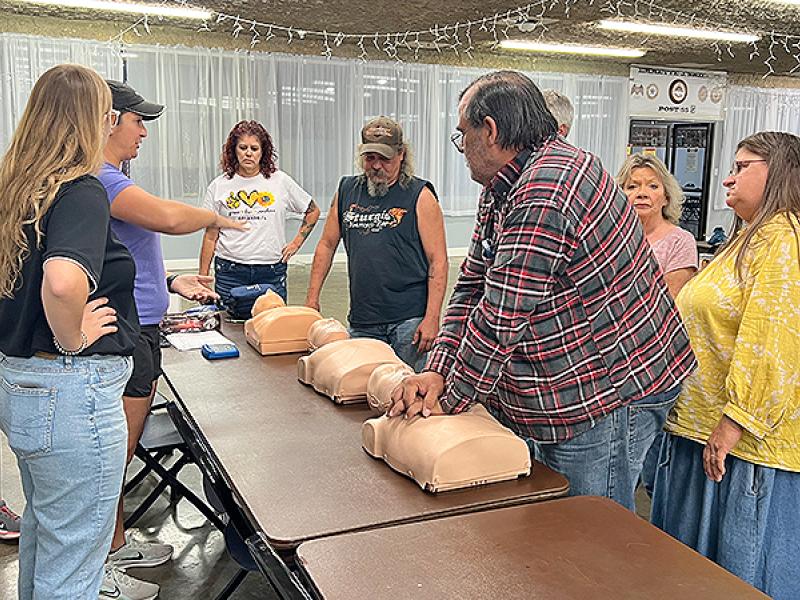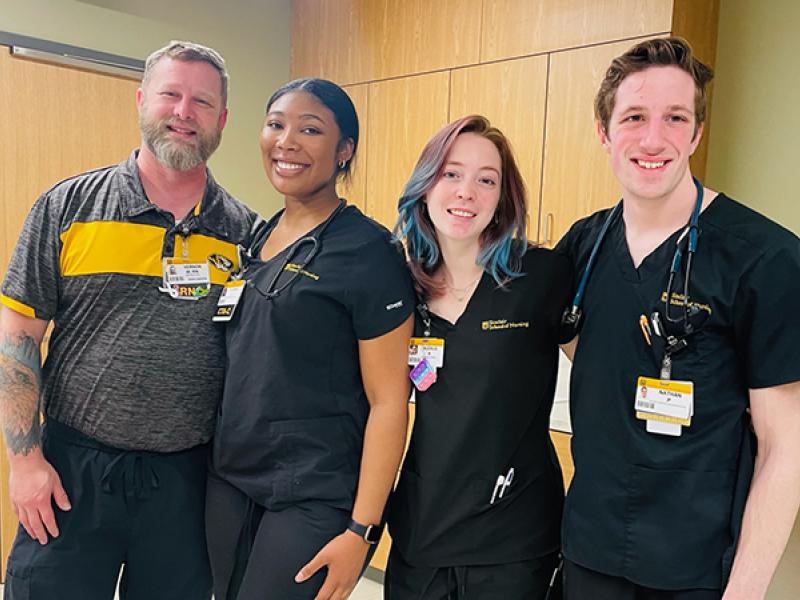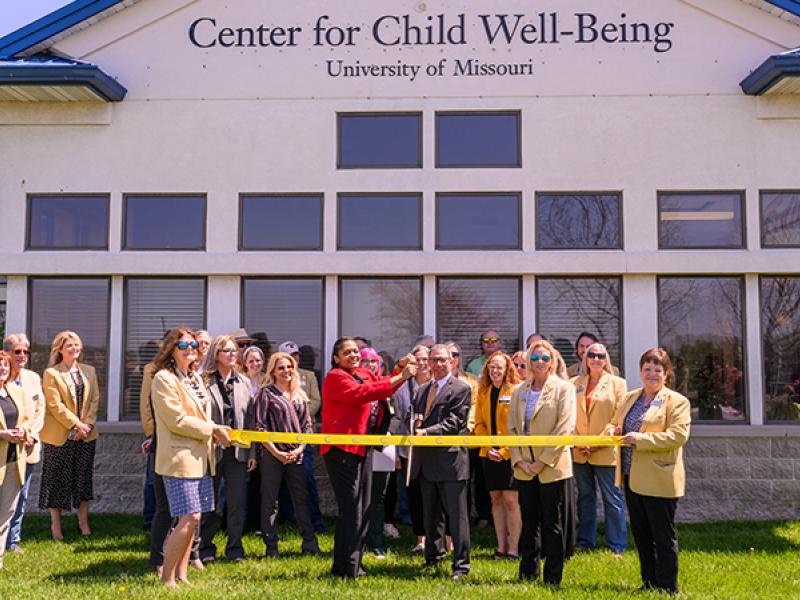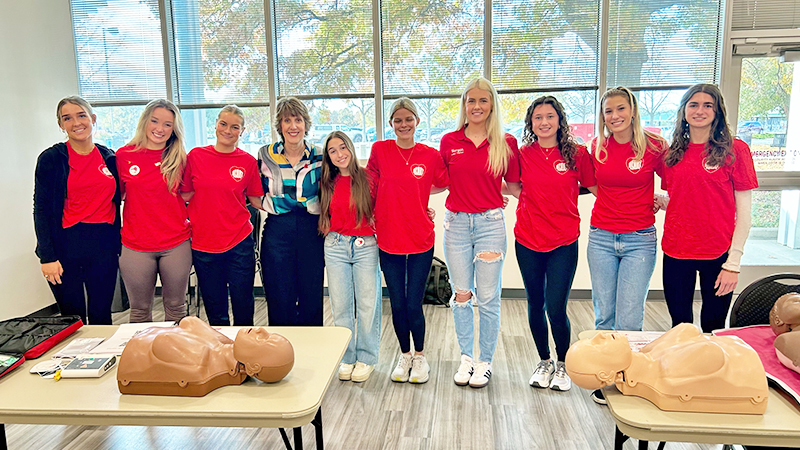
One day in February 2023, Donna Pond was at work when she began to feel dizzy. She was boarding an elevator on her way to a meeting when she suddenly lost consciousness. Her colleagues, including Daphne Ingebritson, were working nearby and heard Pond collapse in the hallway.
Ingebritson checked to see if Pond was breathing and had a pulse, but she didn’t. Unable to quickly find an automated external defibrillator (AED), she began administering CPR. Because of Ingebritson’s quick and effective action, Pond is still alive today.
“I had no symptoms prior to this event,” said Pond. “I was pulseless for 20 minutes, so I’m quite lucky to be here today. My story is an example of what high-quality CPR can do to save lives.”
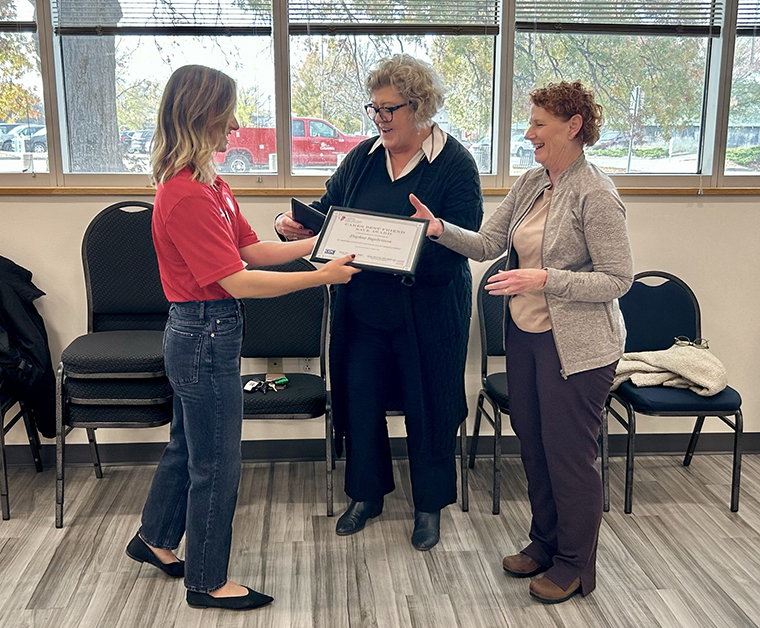
When it comes to sudden cardiac arrest, minutes matter. According to the Missouri Cardiac Arrest Registry to Enhance Survival (C.A.R.E.S.), a program managed by MU’s Department of Emergency Medicine, death can occur within four to six minutes of cardiac arrest. In the absence of an AED, performing CPR – even hands-on CPR by an uncertified individual – can have a profound impact on survival outcomes in those critical early minutes.
Thanks to community grant funding from the Alpha Phi Foundation, Missouri C.A.R.E.S. recently held a free, hands-only CPR training event for the Columbia, Missouri, community in an effort to increase awareness about the importance of bystander intervention and the value of hands-only CPR.
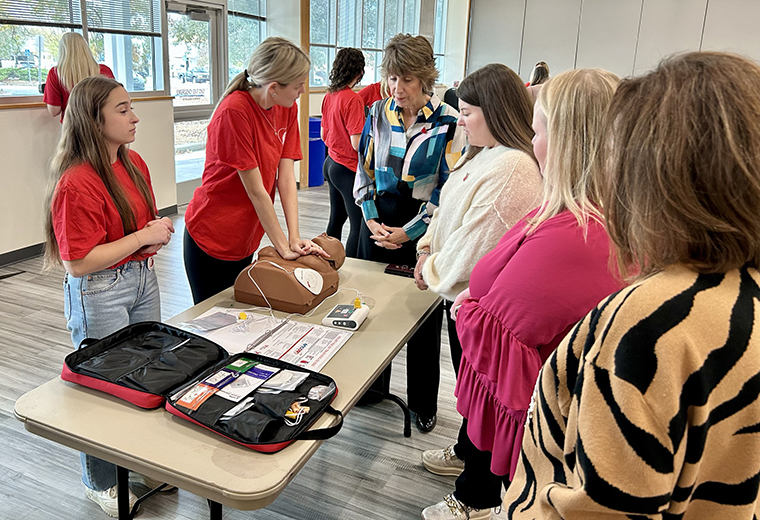
The program featured new female training manikins, as only 13% of females in Missouri receive bystander CPR during cardiac arrest events, according to data obtained by the Missouri C.A.R.E.S. program. Research found bystanders fear risking injury or being accused of sexual assault when it comes to performing CPR on a woman.
Led by Kayla Riel, Missouri C.A.R.E.S. coordinator, and Julie Stilley, PhD, research director of MU Emergency Medicine and C.A.R.E.S, the program continues to host community events to expand knowledge across the state.
“We’re thrilled to be supported by an organization that prioritizes women’s heart health,” said Stilley. “The University of Missouri and the Alpha Phi Foundation share the common goal to improve cardiac arrest outcomes for women and for all others in Missouri. Through this community-focused grant, C.A.R.E.S. will be able to effectively increase our reach across the state and we’re thankful for this new partnership.”
Shana Goss Smith, secretary of the Alpha Phi Foundation Board of Directors, and members of the sorority were present at the latest community event, showcasing its new training manikins and offering hands-on instruction for community members.
“There has been a lot of interest and excitement for this cause, and this is a great step forward for us with our very first community grant,” said Smith. “The Alpha Phi Foundation Board of Directors and our generous donors are proud to support the Missouri C.A.R.E.S. ‘Heart Squad’ as they continue to advance this important initiative.”
Following the formal community grant award presentation, Riel and the Missouri C.A.R.E.S. program announced a special recognition for Pond and Ingebritson. The duo was presented with the “Best Friend Save Award” and offered those in attendance a real-life example of the power of effective bystander CPR.


